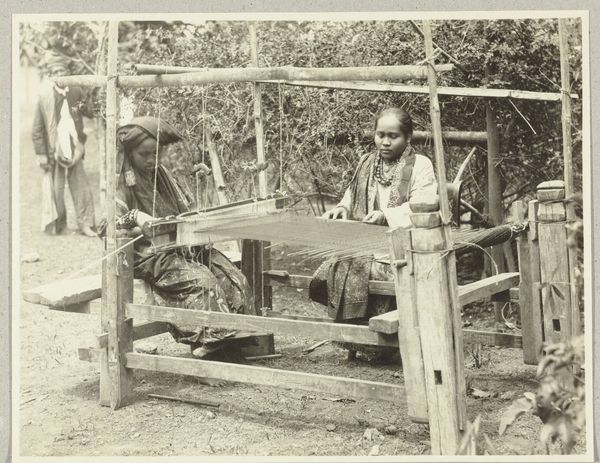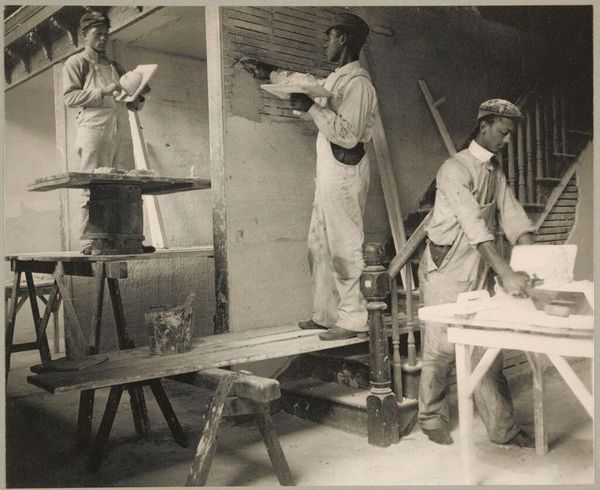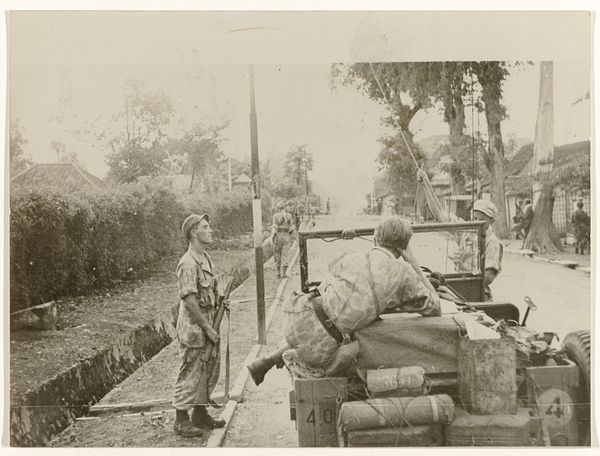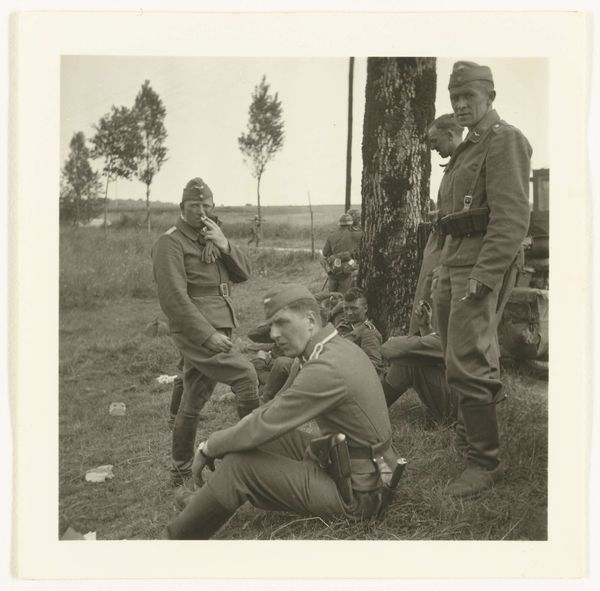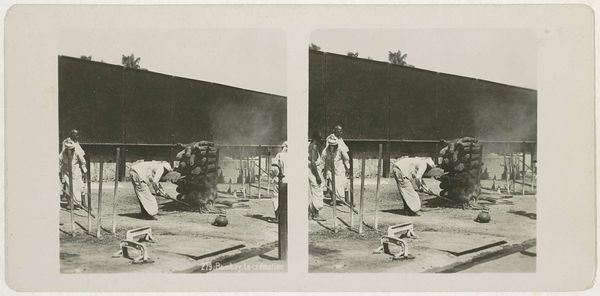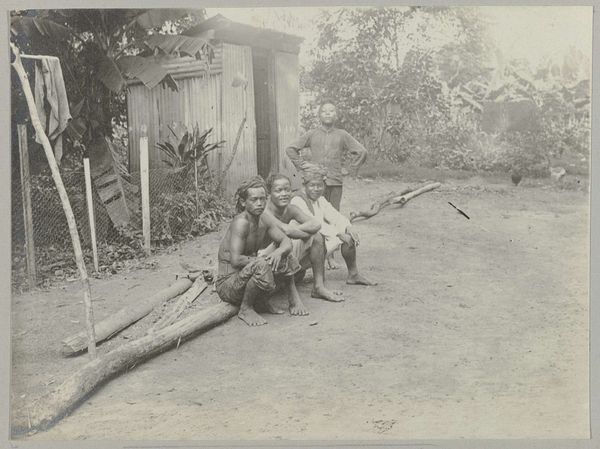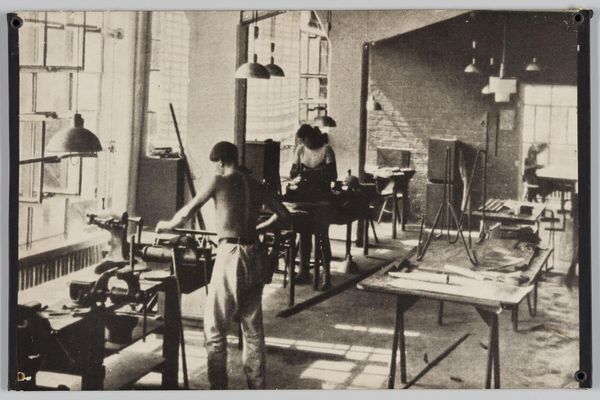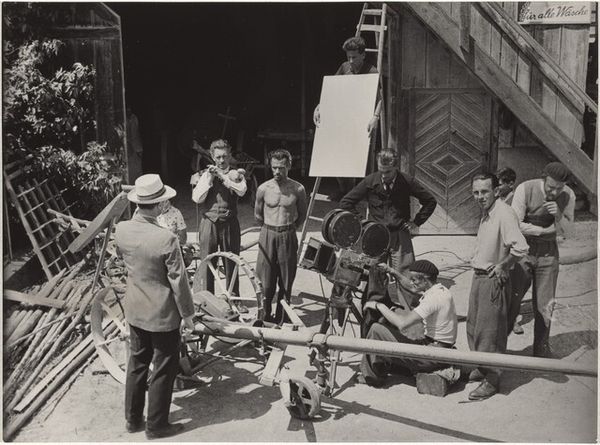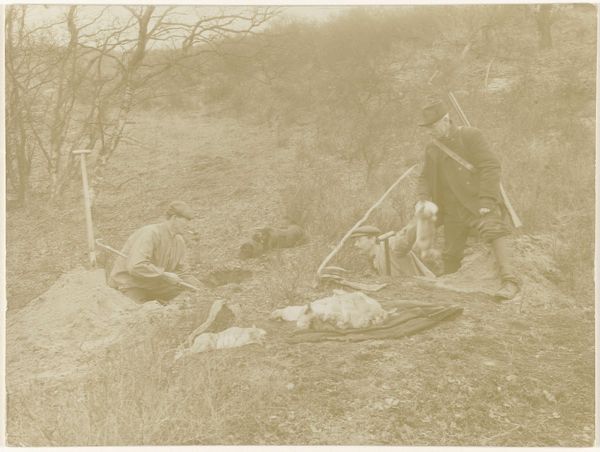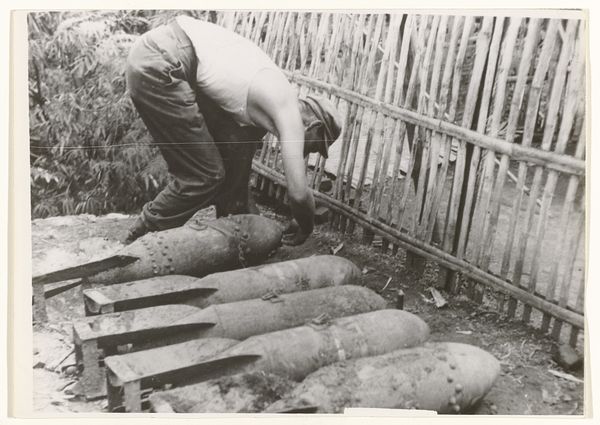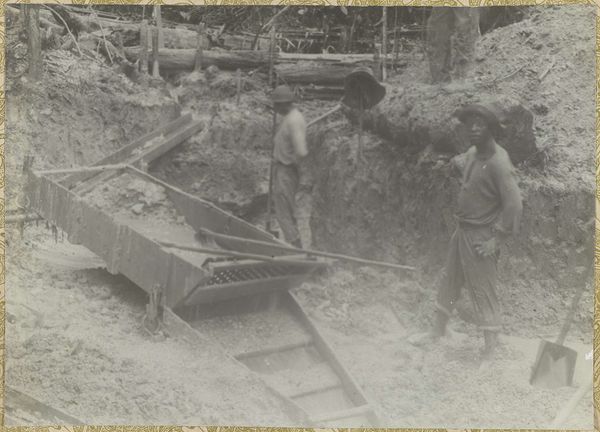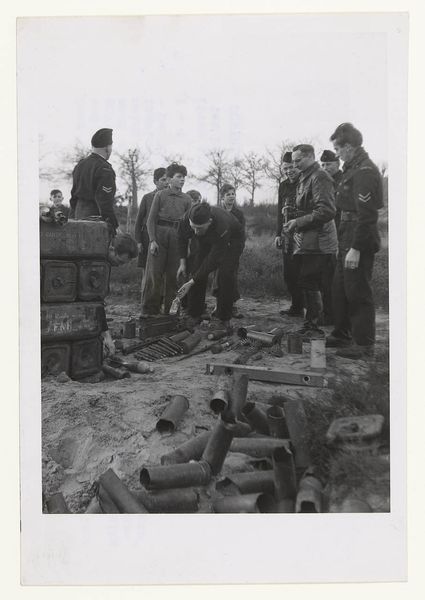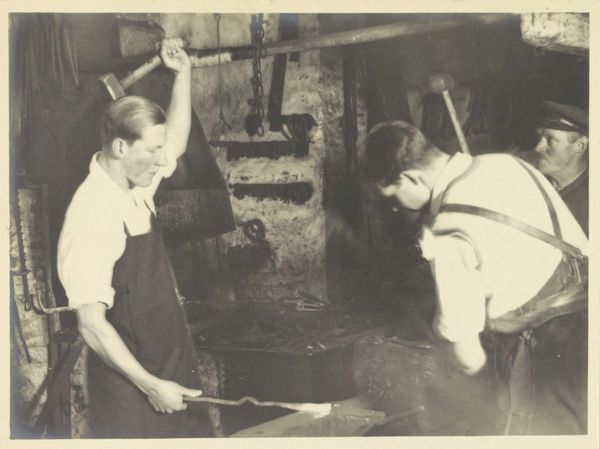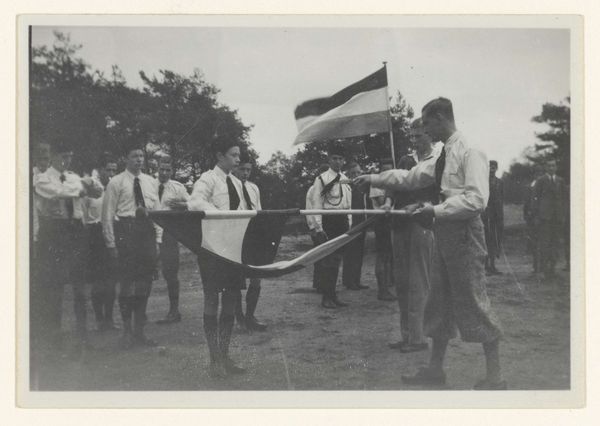
photography, gelatin-silver-print
#
portrait
#
outdoor photograph
#
outdoor photo
#
archive photography
#
photography
#
historical photography
#
gelatin-silver-print
#
genre-painting
#
person photography
Dimensions: height 179 mm, width 238 mm
Copyright: Rijks Museum: Open Domain
Editor: This photograph, titled "Leerlingen van Schule Schloss Salem zagen balken" was taken around 1929 and is a gelatin-silver print. It looks like a candid shot of students doing carpentry. The expressions are really focused, almost intense. How do you interpret this work, considering its historical context? Curator: This image offers a fascinating glimpse into a specific time and place, doesn't it? Schule Schloss Salem, founded in the 1920s, was known for its progressive, experiential education. Knowing this, we can interpret the photograph not just as a documentation of students working with wood, but also as an embodiment of the school's philosophy. Editor: So, it's more than just woodworking? Curator: Precisely. Consider the era - the Weimar Republic, a time of intense social and political upheaval in Germany. The emphasis on practical skills and community building at Salem can be seen as a response to this instability, a way to equip young people with the tools – literal and metaphorical – to rebuild society. Does that shift your perception? Editor: It definitely adds another layer. Seeing them now, they aren’t just students, they are actively building their future! I hadn't thought about it like that. Curator: And what about the photographer’s choice to capture this moment? Could it be seen as a statement about the value of labor and the potential of youth during a period of national crisis? Editor: It makes me think about access to education, too. Were the benefits of this school shared equitably? That tension makes this photograph even more engaging. Curator: Absolutely! Photographs like these are powerful precisely because they allow us to unpack these layers of meaning, sparking conversations about history, identity, and the role of education in shaping a more just society. Editor: Thank you! I will definitely think about photographs more broadly after that!
Comments
No comments
Be the first to comment and join the conversation on the ultimate creative platform.
